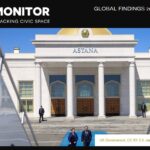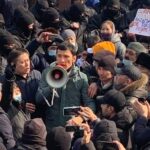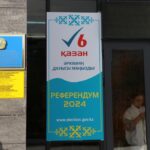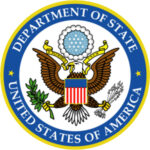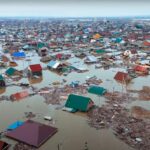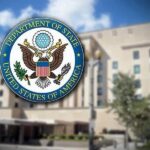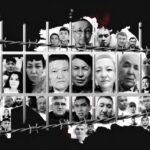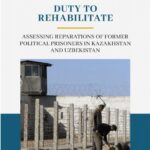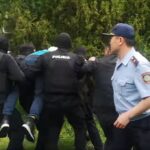(Berlin) – Kazakh and Uzbek authorities intensified persecution of outspoken government critics in 2012, while none of the five Central Asian governments seriously tackled longstanding, grave human rights abuses, such as widespread impunity for torture, Human Rights Watch said today in its World Report 2013.
Kazakhstan initiated a harsh and unprecedented crackdown on freedom of expression and political plurality, imprisoning outspoken opposition and civil society activists and shutting down an opposition group and key independent media outlets. In Uzbekistan, authorities intensified their crackdown on civil society. They placed rights activists under house arrest and incommunicado detention for peaceful civic activism, extended the prison sentences of opposition figures without due process, and deported international journalists attempting to visit the country. The Uzbek government defies longstanding requests by 11 United Nations human rights experts to visit the country.
Turkmenistan remains one of the most repressive and closed countries in the world. There were some small, positive steps on human rights in Kyrgyzstan and Tajikistan. But overall, their poor human rights records have not improved despite, for example, government pledges to tackle the problem of torture – a widespread concern in both countries – during visits to each by the UN’s Special Rapporteur on Torture.
“The level of abuse and overall decline in respect for fundamental freedoms in Kazakhstan and Uzbekistan in 2012 is shocking,” said Hugh Williamson, Europe and Central Asia director at Human Rights Watch. “Yet, the EU and the US have largely muted their public concern over the appalling rights records of all Central Asian governments at exactly the time when victims of government repression needed them to speak out on human rights.”
In the 665-page report, Human Rights Watch assessed progress on human rights during the past year in more than 90 countries, including an analysis of the aftermath of the Arab Spring. The willingness of new governments to respect rights will determine whether the Arab Spring gives birth to genuine democracy or simply spawns authoritarianism in new clothes, Human Rights Watch said.
The crackdown in Kazakhstan followed events in December 2011, when Kazakh police and government troops in the western town of Zhanaozen opened fire on oil workers and others, killing 12 people. During 2012, authorities targeted outspoken oil workers, opposition and civil society activists, and journalists who had reported on strikes in the western Mangistau region earlier in 2011. Dozens of people were convicted for alleged roles in the strikes and violence, including Vladimir Kozlov, leader of the unregistered opposition party Alga!, who in October was sentenced to seven and a half years in prison.
In December, courts in Almaty muzzled critical voices by banning Alga! and key independent media outlets from operating in Kazakhstan in rushed trials, labeling them “extremist.”Kazakhstan’s rights record was also marred in 2012 by credible and serious allegations of torture, as well as the death of a 50-year old man in December 2011 after he was severely beaten up by police officers while in custody.
Kyrgyzstan is still grappling with the aftermath of the June 2010 ethnic clashes in the south that left hundreds dead and thousands injured. Despite an uneasy calm in southern Kyrgyzstan, the authorities are still detaining, torturing, and extorting money from ethnic Uzbeks, without redress, despite Kyrgyzstan’s adoption in 2012 of a national prevention mechanism against torture. A human rights defender, Azimjon Askarov, is serving a life sentence, despite a prosecution marred by torture and serious violations of fair trial standards.
The authorities limited the right to freedom of expression by blocking access to Ferghana.ru, an independent Central Asia news website, and banning a documentary film about gay Muslims. Gender-based violence remains a serious and widespread problem.
Tajikistan enforced a repressive law on religion and introduced legislation to restrict religious education. Authorities restricted media freedom, blocking access to independent news and social networking sites such as Asia Plus, Facebook, and YouTube. Torture and ill-treatment of detainees and domestic violence against women remained widespread, even as a Tajik court sentenced a police officer to seven years in prison for torture in September.
In July, dozens of deaths and numerous injuries were reported in Khorog, the provincial capital of Gorno-Badakhshan, after the government sent troops to the southeastern region to arrest those responsible for the fatal stabbing of the local state security chief. By late July, official sources reported that 17 government soldiers, 30 gunmen, and 20 civilians had died in the violence, but independent sources reported greater numbers of casualties among the general population.
Turkmenistan failed to take any meaningful steps to improve its longstanding abysmal rights record despite a damning assessment in March by a key UN expert body, the Human Rights Committee, which examined Turkmenistan’s compliance with the International Covenant on Civil and Political Rights and issued detailed recommendations for steps to address the concerns it identified.
The government forcibly detains dissidents in psychiatric facilities and persecutes people who fall out of government favor. Well-known political prisoners are serving lengthy prison terms on fabricated chargeswhile the country remains closed to any independent human rights scrutiny. Independent civil society activists and journalists cannot operate freely, and human rights defenders face a constant threat of government reprisal.
In Uzbekistan, contrary to repeated pronouncements by its authoritarian president Islam Karimov on the “liberalization” of its courts and prisons, torture remains endemic in the country’s criminal justice system, which lacks an independent judiciary. For example, in July, police in western Uzbekistan detained a Jehovah’s Witness, Gulchehra Abdullayeva, on suspicion of possessing “banned” literature. Abdullayeva complained that officers made her stand facing a wall for four hours with no food or water in the summer heat. They then placed a gas mask over her head and blocked the air supply.
The government sponsors forced labor of adults and children during the cotton harvest, and, for the fourth year running, authorities denied the International Labour Organization’s request to send independent observers to monitor the harvest.
The US, the EU, and EU member states’ engagement with governments in Central Asia in 2012 focused largely on economic ties, energy, and security interests linked to Afghanistan, Human Rights Watch said.
“Too often, Washington, Brussels, and European governments looked the other way instead of making human rights improvements a condition of closer ties with Central Asia,” Williamson said. “Silence in the face of egregious human rights abuses only increases the long-term instability and security problems bred by governments that systematically ignore the rule of law.”
SOURCE:
Human Rights Watch
www.hrw.org/news/2013/01/31/central-asia-widespread-rights-abuse-repression


